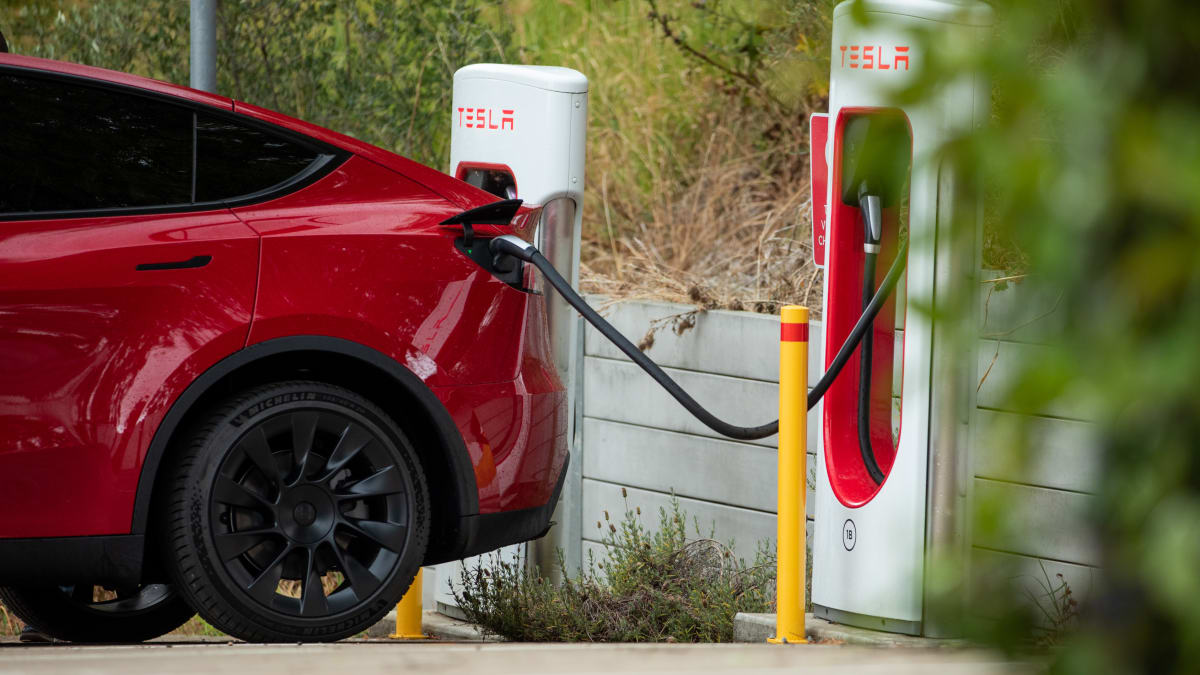Tesla is under fire following a special report which alleges the company specifically installed software designed to overestimate the driving range displayed to drivers, while also employing underhand tactics to handle thousands of customer complaints.
US electric-car giant Tesla has been accused of intentionally providing false driving range estimates on its vehicles – while also allegedly creating a special team to deal with an inundation of customer complaints on the matter.
A damning report from news outlet Reuters alleges Tesla “rigged” dashboard readouts of the estimated driving range on its electric cars, according to information provided by an unnamed source.
The insider – who claims to have seen an early version of the modified software – alleges Tesla vehicles would overestimate the distance the car could travel when it had more than 50 per cent charge.
Once the battery charge level fell below half, only then would the vehicle allegedly show realistic driving range projections.
Furthermore, the whistleblower claims the decision to implement the software came directly from Tesla CEO Elon Musk.
“Elon wanted to show good range numbers when fully charged,” the source reportedly told Reuters.
“When you buy a car off the lot seeing 350-mile, 400-mile range (560-640 kilometres), it makes you feel good.”
The insider said the decision to show the “rosy” projections was made around a decade ago, when Tesla was only selling the Roadster sports car and the Model S large sedan.
It’s not known whether the same algorithm has been added to the Model 3 and Model Y, or if it was fitted to Australian-delivered vehicles.
The report also claims Tesla more recently put together a “Diversion Team” in Las Vegas – specifically created to cancel the appointments of customers who had booked in their cars with service departments for range-related complaints.
The ability to book a service appointment based on complaints of driving range was later removed from the Tesla app in the US – customers could however request a Tesla representative contact them.
The wait was often days, according to a person familiar with the matter, due to the large backlog of range complaints – as many as 2000 cases per week, the source claims.
If the owner didn’t answer their phone, the case would be closed.
While Reuters was unable to verify the software claims, information uncovered by the news organisation under an Freedom of Information request found the US Environmental Protection Agency has forced Tesla to reduce the range estimates of its vehicles by an average of 3 per cent since 2020.
Electric-vehicle analytics company Recurrent has also claimed Tesla vehicles do not change their projected driving ranges based on weather, despite finding that cold temperatures could influence driving range by as much as 10 per cent.
In early 2023, Tesla was fined approximately $US2.1 million ($AU3.14 million) by South Korean regulators who found their electric cars overestimated their advertised driving range by as much as 50 per cent in cold weather.
In another study published by SAE International – a large engineering organisation – researchers claimed electric cars fell short of their advertised ranges by an average of 12.5 per cent for highway driving.
However, one of the co-authors of the study told Reuters it was Tesla vehicles that performed the worst, allegedly falling short by an average of 26 per cent.
“I’m not suggesting they’re cheating,” the co-author said of Tesla.
“What they’re doing, at least minimally, is leveraging the current procedures more than the other manufacturers.”





